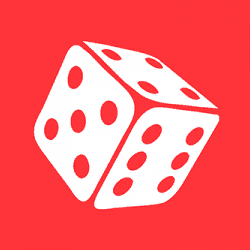Paul Krishnamurty has made a living as a pro gambler for 17 years. Here he shares five pieces of essential advice for anyone planning to pursue this exciting career path.
1. Plan a Tight Work Schedule
Genuinely professional gamblers are rare, but my experience proves it is possible. Many more have the expertise to consistently make a profit but prefer to keep their gambling as a side income to their main job.
That was me for the decade before turning professional. It wasn’t a decision taken lightly. It required building a decent bankroll – equivalent to one year’s living expenses. Before leaving my normal job, I needed to prove to myself that I could win regularly and systematically over the course of a year, working part-time. Half the hours of my full-time job, to make half my wage.
In addition to working 40 hours, I would set aside 20 for betting.
A weekly schedule mapped out around live sport. Since turning pro, the number might range from 40 to 50 hours, but the planning still applies.
It is really important to stick to the hours. You need to preserve energy and brainpower, so don’t move onto an unplanned extra event because you’ve had a winning day or chase losses. Of course, NEVER chase losses.
2. Learn to Grade Your Bets and Keep a Tight Staking Plan
Discipline is everything in gambling. This is an incredibly emotional, sometimes stressful, pastime. Let alone when paying the bills depend upon it. A bigger reason for gamblers losing than simply picking bad bets is erratic, inconsistent staking. Back a winner, then bet more on the next one. Back a loser, bet bigger to chase the stake, run out of cash quickly.
Never think that way. Every bet has a particular worth, based on how confident you feel.
When choosing your selection, grade each bet.
For example: either A, B, or C. A is the most confident, so stake to earn 30 units profit. B is the second best to earn 20 units. C is ranked third, to earn 10 units. (To clarify, this example implies a bankroll of 500 units).
Stick to this staking plan rigidly. Not only will it keep your staking under control, but the process of ranking selections will also improve your decision making.
3. Keep Records to Analyze at Regular Intervals
Another essential lesson. It is easy to fall into the trap of forgetting about losers or misrecalling winning streaks.
Keep a record of every bet - the selection, stake, type of market.
Then commit to a date – every three months perhaps – to analyze all of these bets. Calculate which markets, or types of bet, are paying off and which aren’t.
This process had a profound impact on my development. From betting on horse racing and football every day, both had been all but eliminated from my routine within five years. So too many sports. The most prodctive games by my numbers are:
Therefore, now dominate in my schedule. Anything else is a distraction.
4. Specialize and Know Your Subject
Those sports weren’t selected because they were definitively easier to make money on than football or horse racing. It just worked best for me. With others, it might be tennis or casino games. By keeping records and analyzing them, you will be able to identify where your skills are best employed.
Once a niche has been found, go deep.
You are not the only professional playing the market. You need to aim to be the best, or close to it. Treat this like a job or a university degree. Master your relatively small area of focus.
For example, if your sport is horse racing, find the particular racing class in which you fare best. Handicap chases, for example. Study the eight handicap chases in Canada and America on a particular day to the exclusion of every other race. Know the form of all the horses, their preferred conditions, and likely odds. Know how the trainer is faring, and the course is running.
This may sound like a lot of information to retain, but it is a legitimate and realistic workload. Once you’re into the routine, knowing these snippets of information becomes second nature. The research gets quicker, and your strategies get sharper. Knowledge is power.
5. Diversify and Always Look For New Angles
Never rest on your laurels or take anything for granted. Particular angles and strategies that have paid well will dry up. Bookies get smarter and learn from their mistakes.
Online players constantly get smarter, and you must match their progress.
Rival gamblers spot your clue and copy it. Sometimes the rules of a game or sport might change slightly, to the detriment of betting systems that have worked for years.
Therefore once you’ve mastered one niche area, look for another. Then again, until you’re confident to trade in at least four areas. It is critically important to spread your risk. Everyone suffers from bad runs, and you don’t want to be wholly reliant on one source of income. There have been years where I’ve lost on one of my four markets but made enough elsewhere to cover it.
This is exactly how major investors operate. They don’t just buy stocks, but also currencies, gilts, art. If one position goes awry, they plan to cover that loss on a different investment. You may only be starting out as a small player in a huge global betting market but you should adopt the mindset and approach of the top investment professionals.







